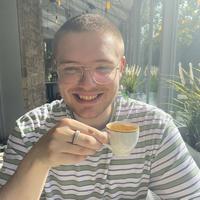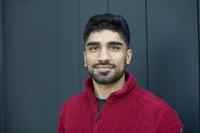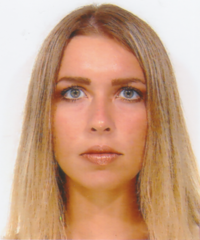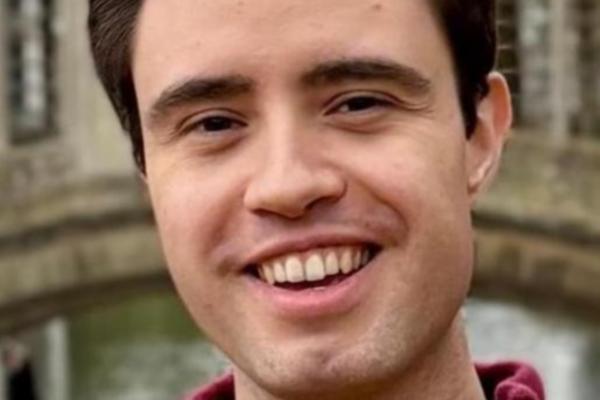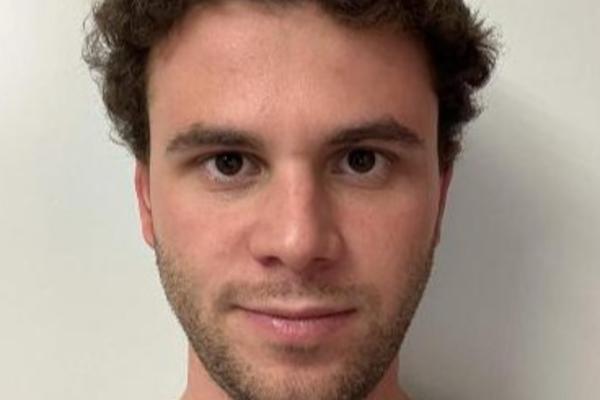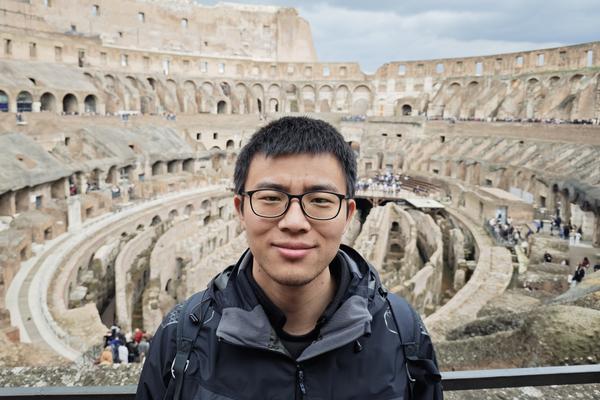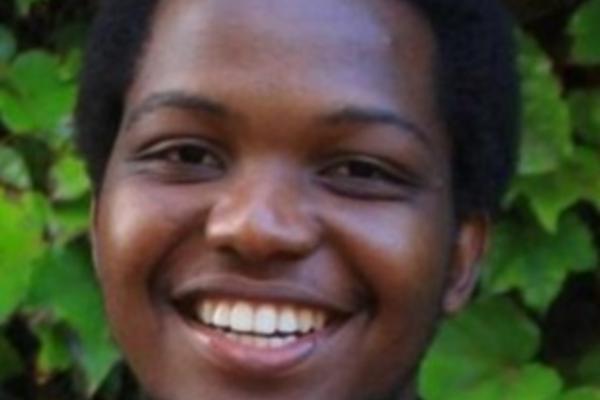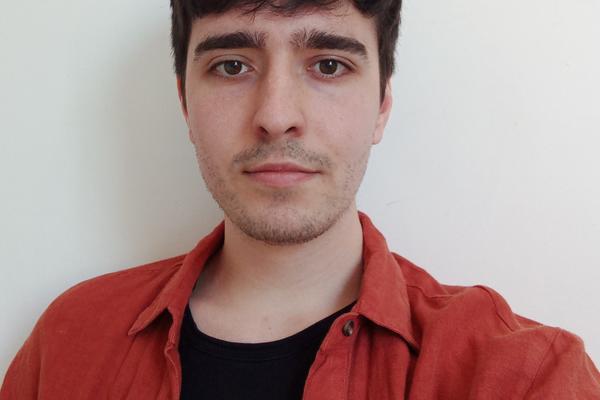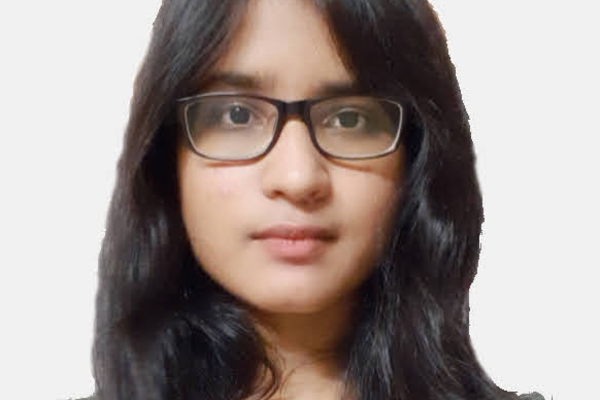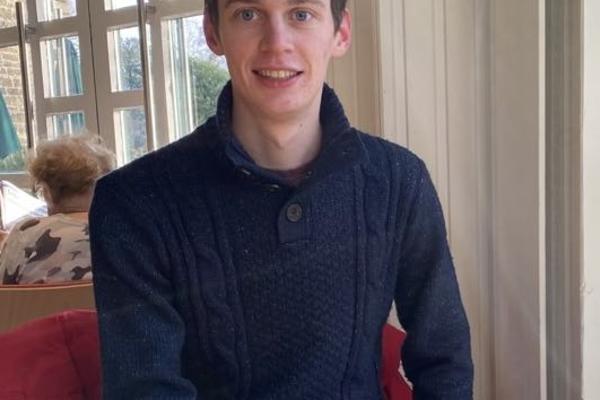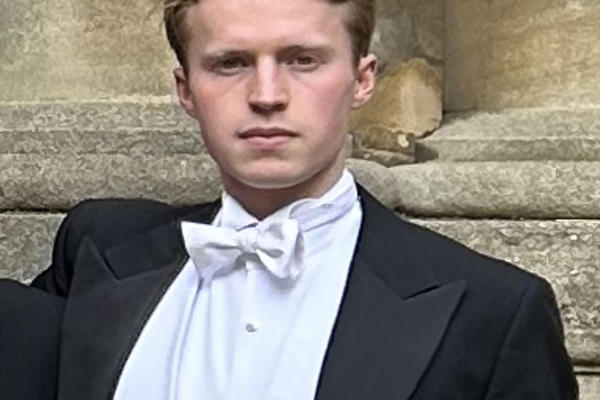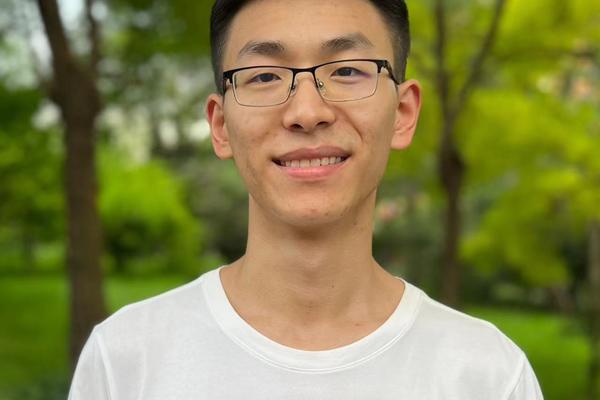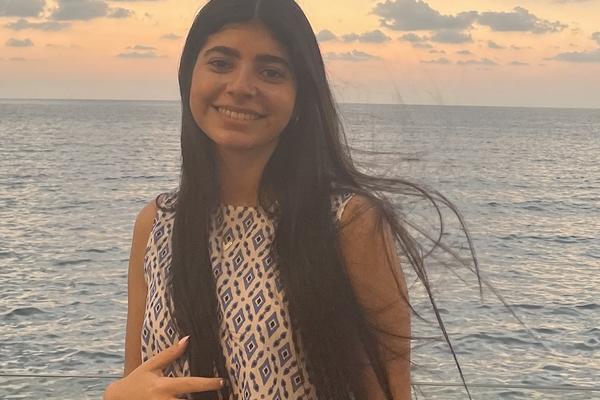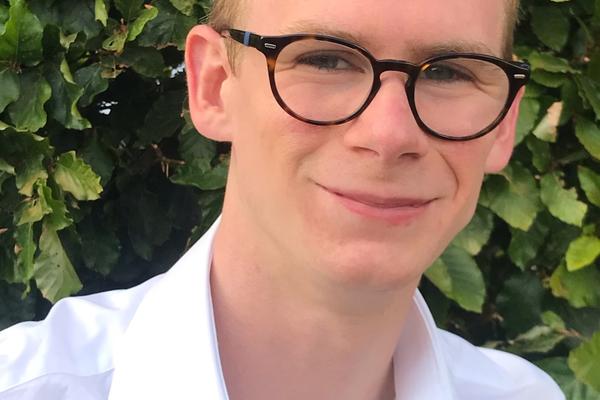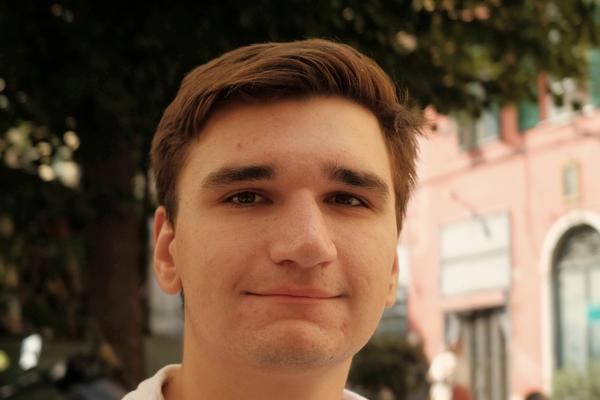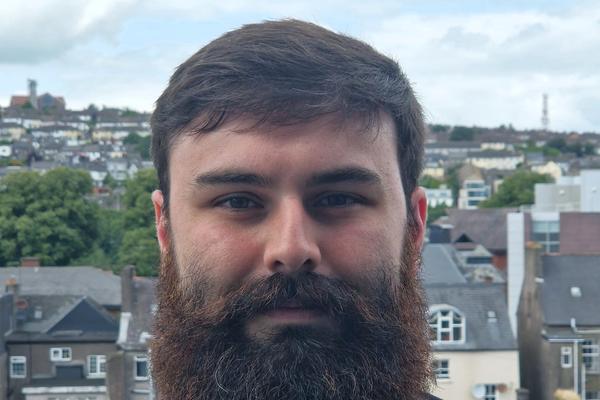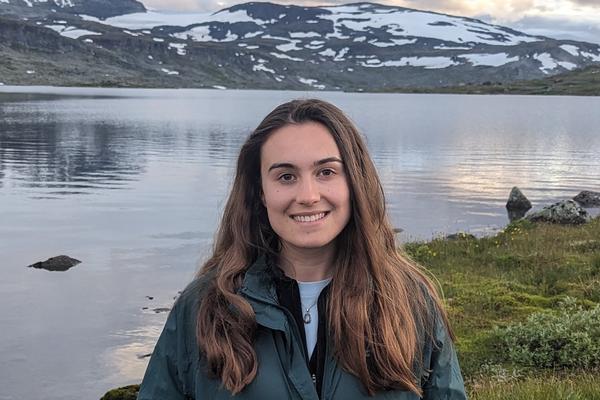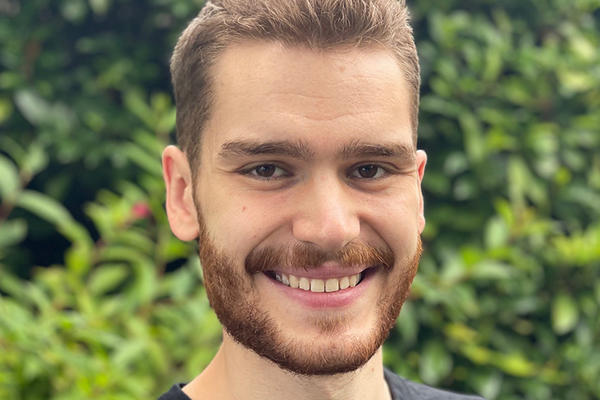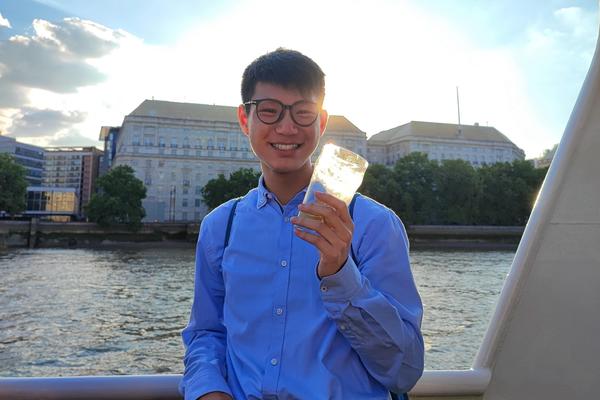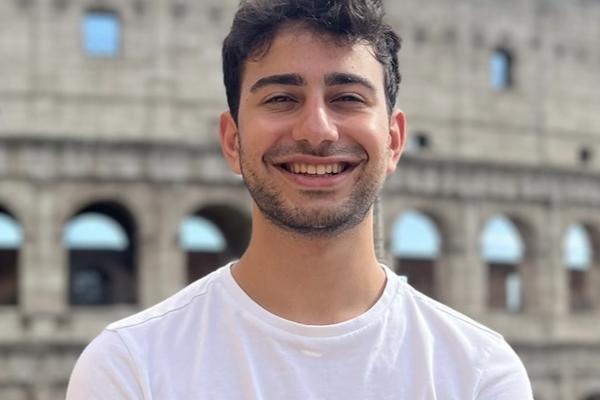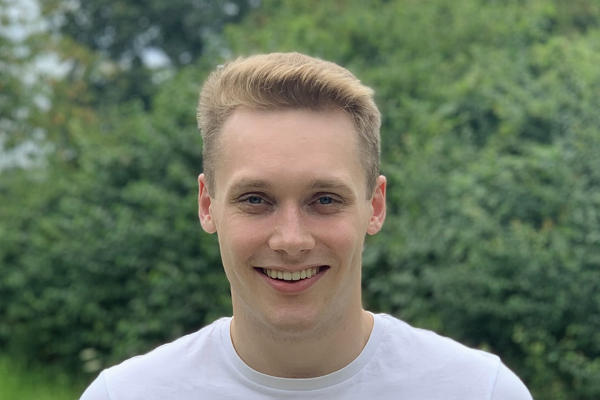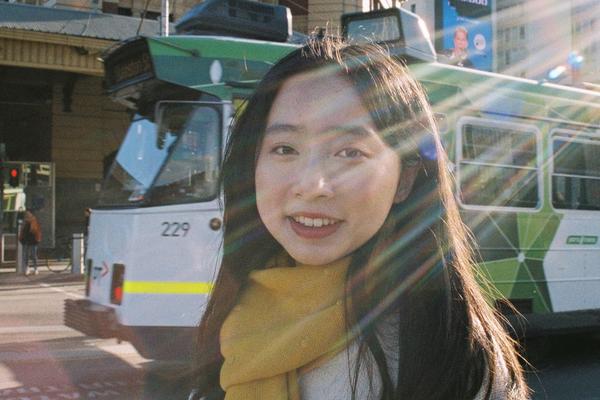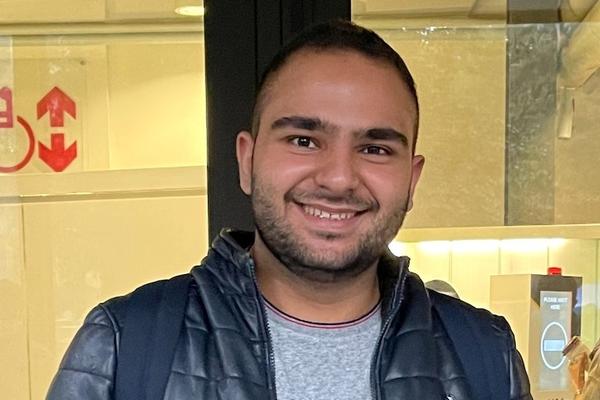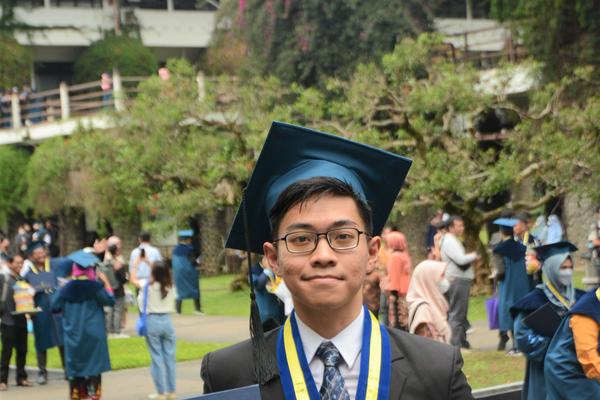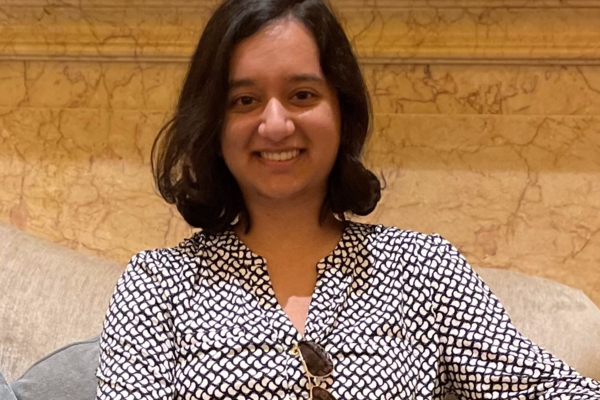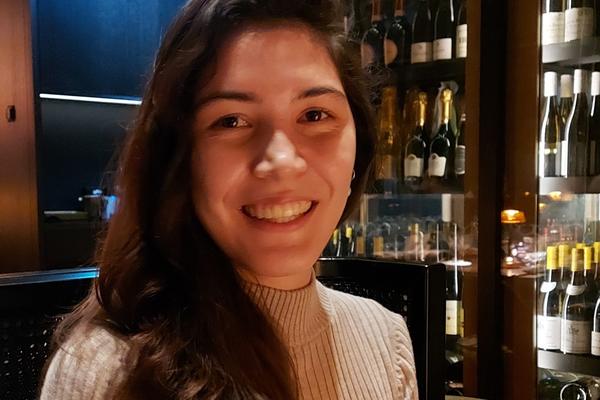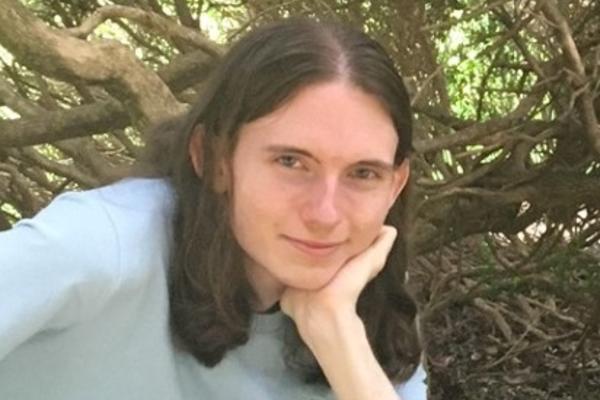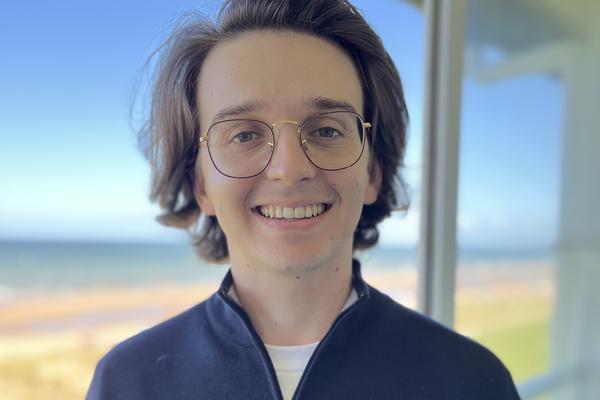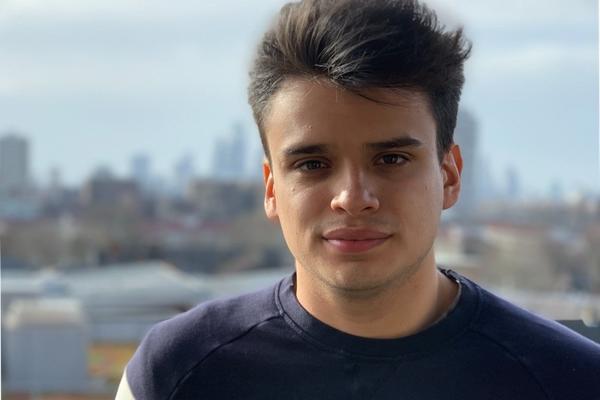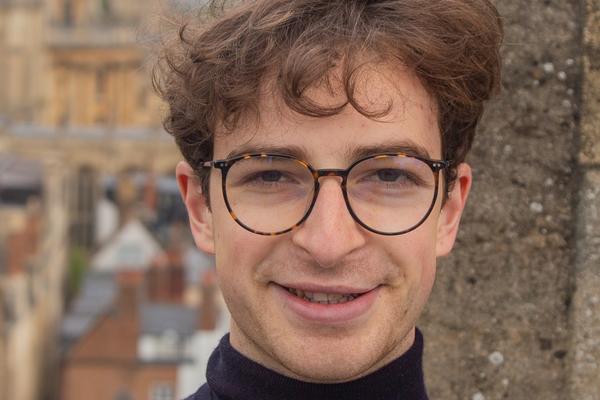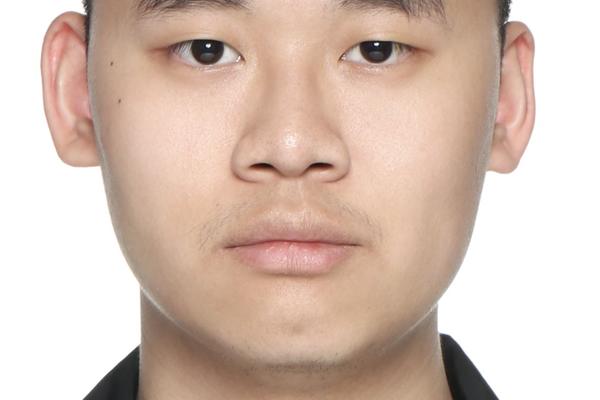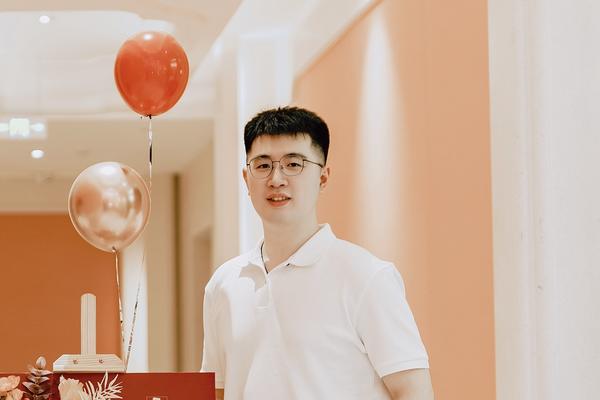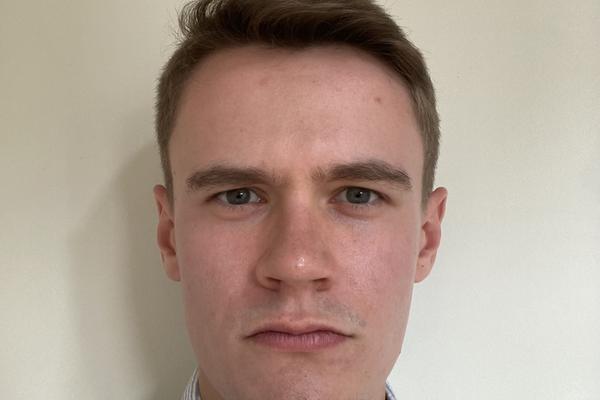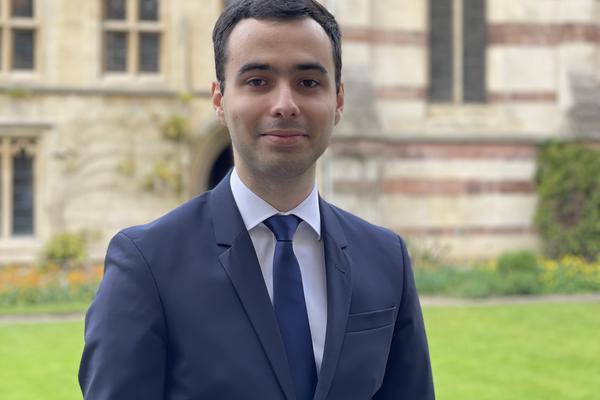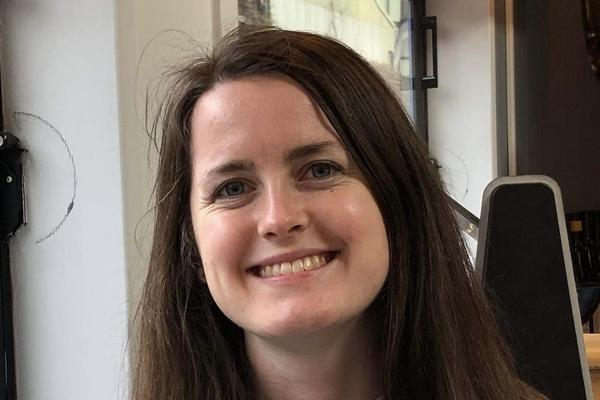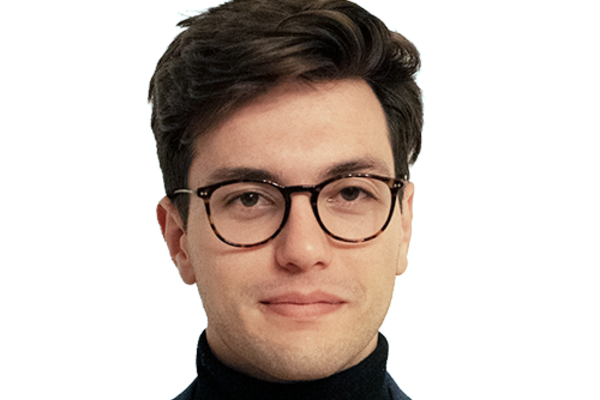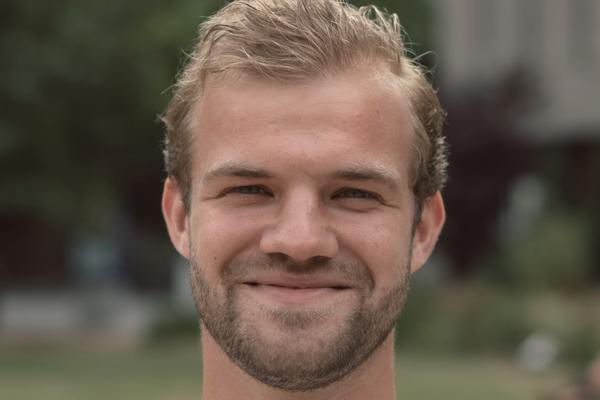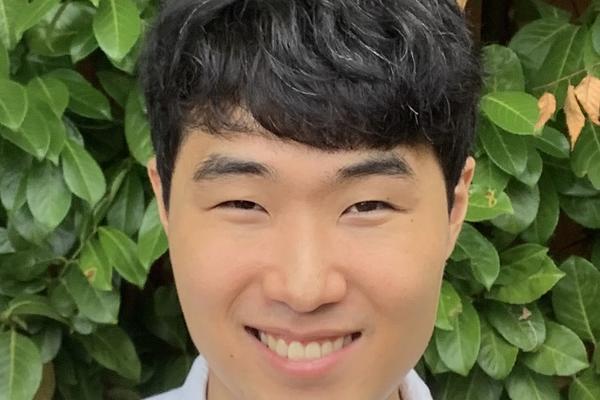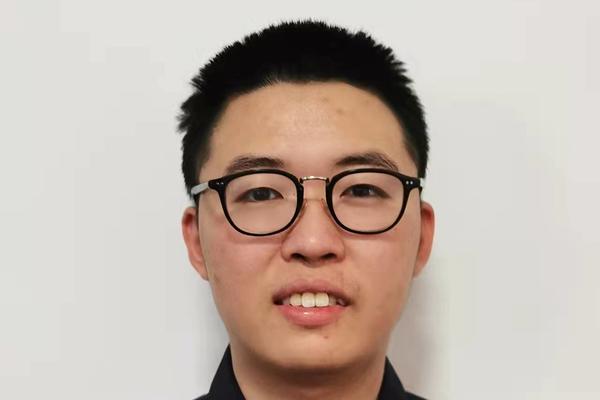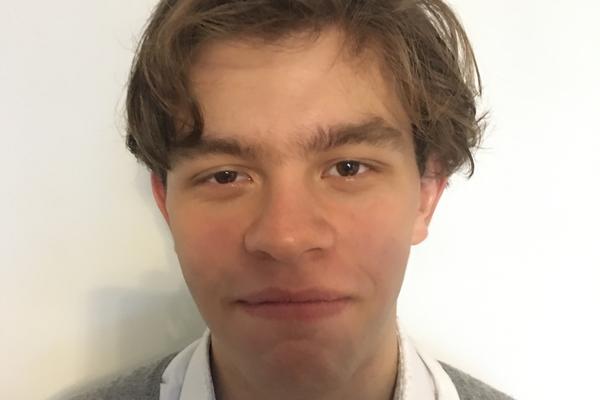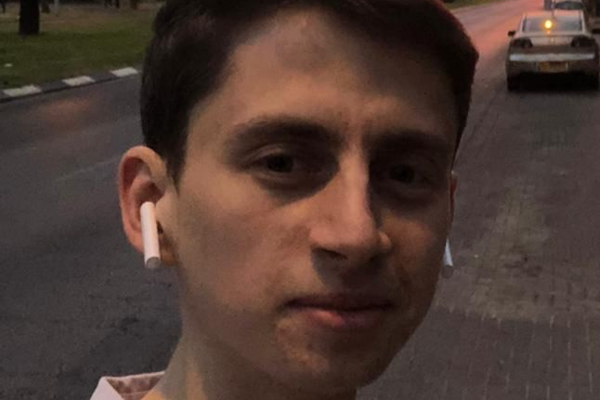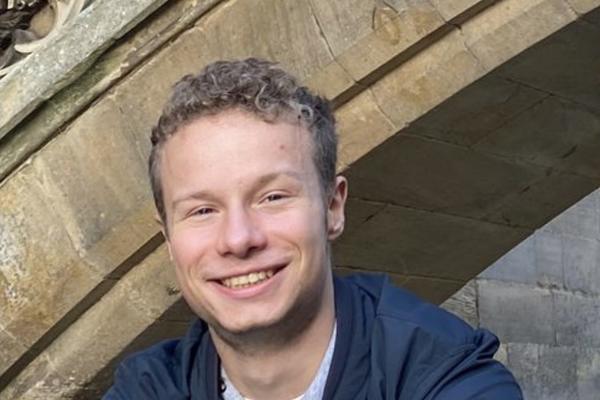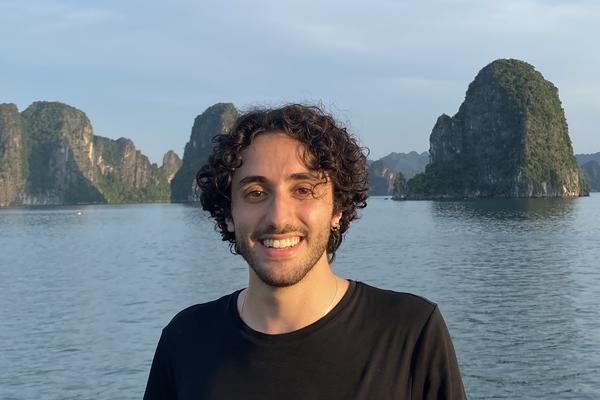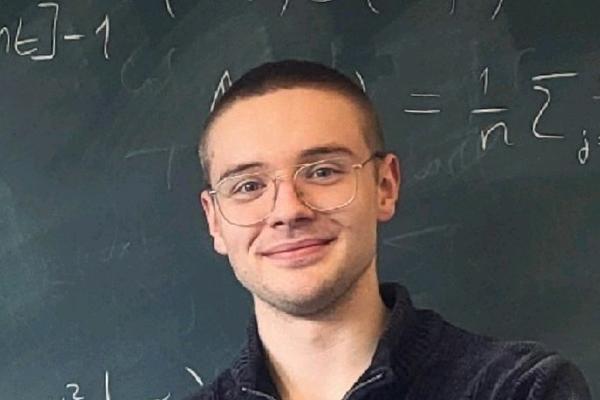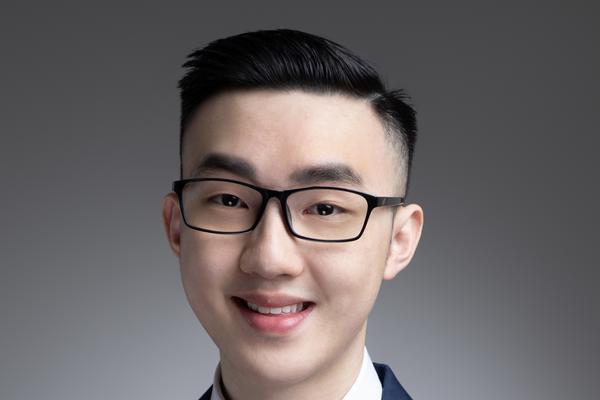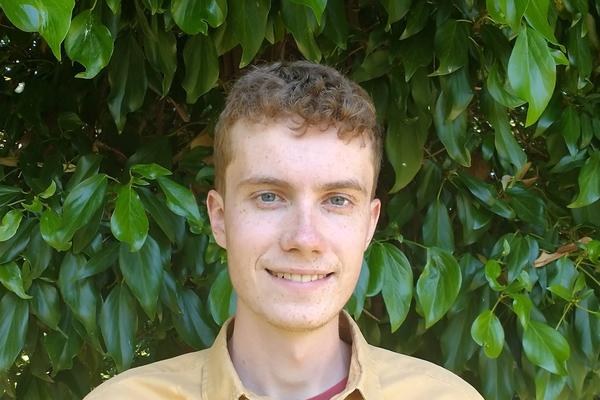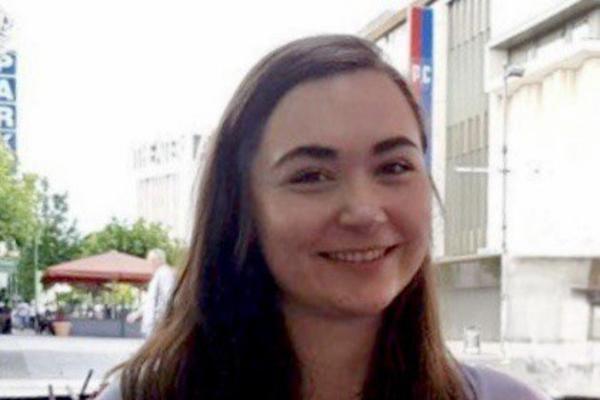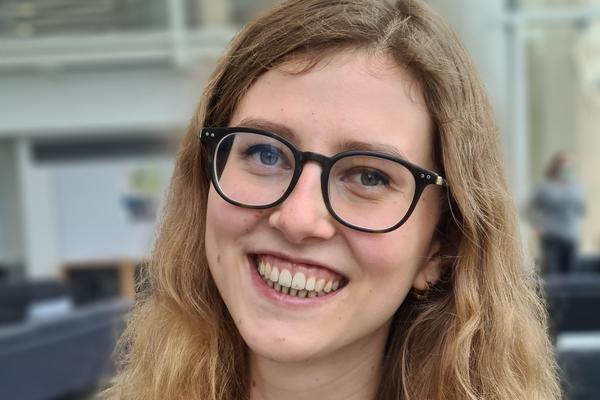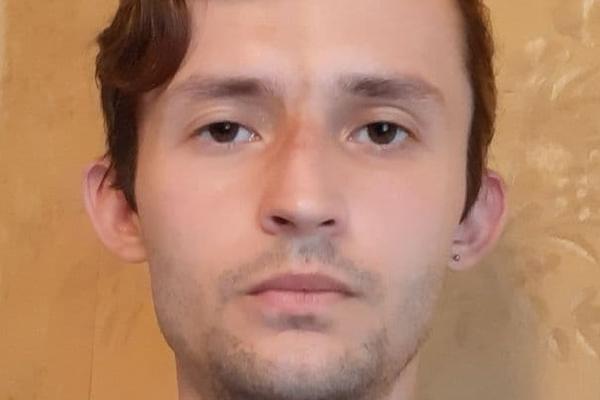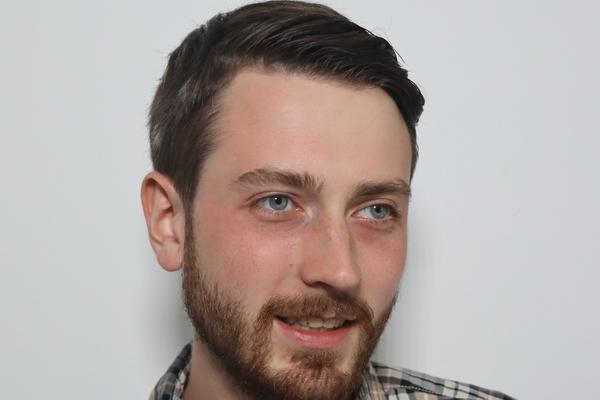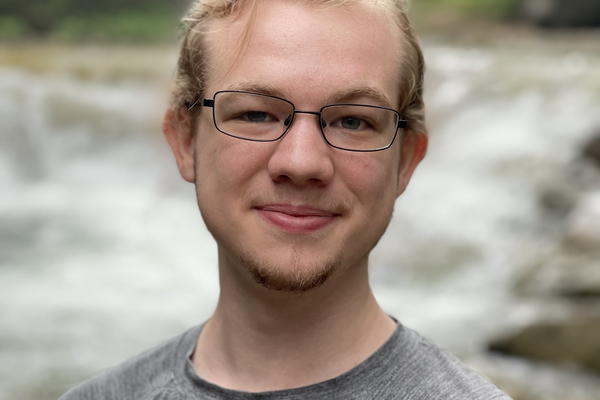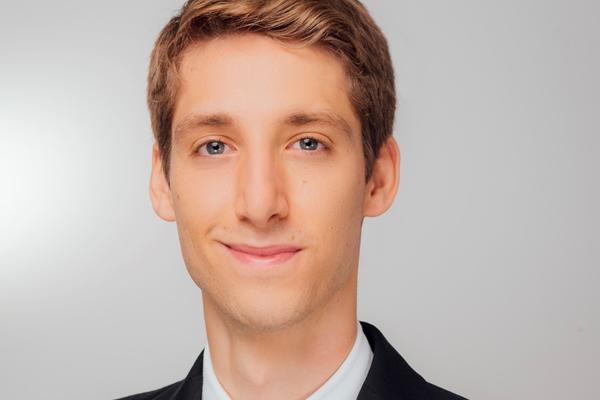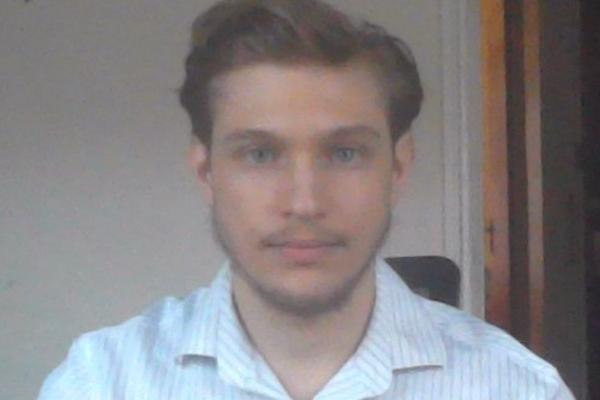Current Students
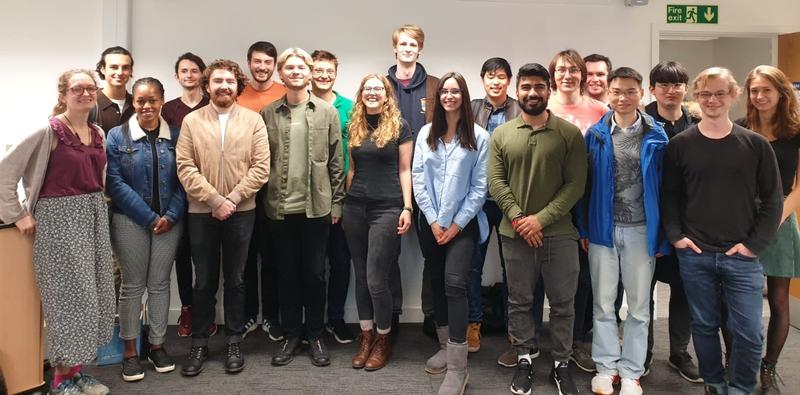
We welcomed our first cohort of students to the CDT in October 2019. We now have over 50 students in the programme, and over 40 alumni.
Student research projects cover a broad range of topics, from foundational questions in stochastic analysis, rough path theory, regularity structures and stochastic partial differential equations, to applications in mathematical biology, computational finance, brain modelling and data science.
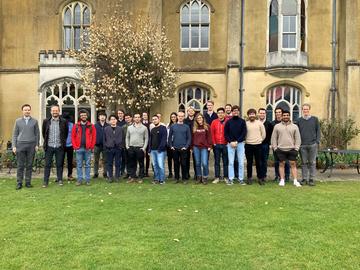
Student Profiles
I'm Adam, a first year student on the Random Systems CDT.
Before starting on the CDT, I got my MMath at the University of Warwick, where I studied a variety of pure and applied mathematics and related disciplines. After focusing on pure mathematics in my final year, I wanted training in more applied mathematics. I found this programme and I thought about applying since I first heard of it.
One of the motivating factors for applying here was the emphasis on collaboration with peers and interaction with established professors. This CDT has a great social atmosphere with a lovely shared office space in the south wing of the mathematical institute, with a like-minded but still diverse cohort. We also get many opportunities to visit Imperial College London, especially in the first year.
Now I'm focusing my studies and research on financial mathematics and it's fantastic to be in such close proximity with prominent researchers in my field, in such a conducive environment to learn.
Read more
My name is Shyam, a second year student in the Random Systems CDT.
Before joining the CDT I studied a four year integrated masters in MORSE (Maths, Operational Research, Statistics and Economics) at Warwick University. I knew quite early on (around second year of undergrad) that I wanted to do a PhD, but it was only after the first term of third year, after I had studied some more advanced material, that I decided I wanted to go into something to do with Probability and Stochastic processes.
I didn’t have the chance to study as much math as I would have liked during my undergrad (especially in the first two years) so I very much appreciated the course structure of the CDT, particularly the chance to study so many courses in the first part of the program. The thing I like most about the CDT is how close we have gotten as a cohort through all the CDT activities. There are so many excellent students on the program who have helped both with the course material and my research! My research interests are in stochastic partial differential equations, particle systems, fluctuations and large deviation principles.
Outside of the CDT I am a competitive powerlifter. I have been training specifically for powerlifting since coming to Oxford in September 2021 and joining the Oxford University Powerlifting Society (OUPLC). It was my honour last year to represent Oxford in the Oxford vs Cambridge powerlifting varsity and to compete in the national BUCS competition.
Read more
Hello! I’m Deborah and I come from a small town in the Alps in Italy. I first moved to the UK for my undergraduate degree, which was in Theoretical Physics at Imperial. Then, I slowly started a transition into Maths with a Master in Mathematical Sciences here at Oxford. During that year, I was also introduced to topics in mathematical and computational finance. The subject quickly grew on me, and I thus decided to apply to the CDT in Random Systems.
My current research focuses on Decentralised Finance, and I generally work with network analysis and clustering techniques.
I really like the CDT in Random Systems because it gave me the opportunity to meet many people with related, but not identical, research interests. It is nice and inspiring to compare parallel views and approaches to similar problems, and I can tell you that there has not been a coffee break with colleagues over which I have not learned something interesting and new!
Oxford itself is really nice too. I love nature and there are quite a few parks around, where I go for relaxing and refreshing walks.
Read more
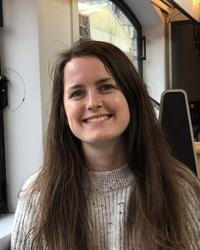
I’m Holly, a first year student on the CDT, based at Imperial. I did my undergraduate degree at the University of York in Natural Sciences, specialising in Mathematical Bioscience.
I first became interested in random systems through their applications in biological processes. I decided to apply to the CDT as I felt the courses offered in the first year would give me a solid mathematical grounding in some techniques that I will be able to apply to my research, working towards modelling the hidden causes of disease progression.
I have really enjoyed getting to know others in the CDT and taking part in the monthly workshops where students present their research. There are so many opportunities to get involved in activities (academic or otherwise!) at both Oxford and Imperial which is a real benefit of being part of the CDT.
Read more
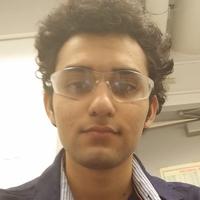
I'm Akshunna. I was raised in a rural middle class family in the Himalayan foothills. Growing up, an American education was far from my reach, but an NYU scholarship helped me get an undergraduate education in both Mathematics and Physics. Post NYU, personal circumstances left me unable to continue my education for a few years, but I still kept in touch with the research world, which later allowed me to pick up a full time Research + Teaching Fellowship at Harvard University in 2020. In the same year, I had the good fortune of meeting Prof. Jeroen Lamb, who convinced me that a Ph.D. within the CDT would be an excellent idea.
The CDT attracted me due to its interdisciplinary, dynamic nature, backed by a rigorous foundation in mathematics. It has allowed me to retain my interest in being a versatile researcher (my current CDT projects fuse ideas from AI/ML, dynamical systems theory, high energy physics, and PDE theory). However, it has also allowed me to rigorously refine and rebuild my niche in the mathephysics of machine learning: a set of methods and tools for solving problems using and within ML. The various travel and social opportunities offered by the CDT - within and outside academia - are quite a substantial bonus as well.
I like how dynamic London is, while still retaining an old world charm. I like Imperial as a scientific institute, since I can pretty much find experts for any question I am stuck on (with the CDT providing the additional perk of direct access to Oxford researchers). Most importantly, my peers are great: a few have even been kind enough to become collaborators. The weather and stipend could both use a raise :D, but by and large, the CDT has provided me with everything I could imagine needing as a PhD student - and then, a lot more.
Read more
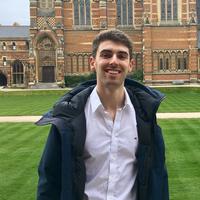
I'm Lance, a final-year PhD student in the CDT primarily based at Imperial College. My goal is to advance our understanding of intelligent systems by modeling cognitive systems and improving artificial systems.
Before the CDT, I did masters in pure mathematics at the University of Cambridge and in neuroscience at UCL, hoping that the latter would give me a better understanding of intelligent systems like the human brain. Now my research is at the intersection of stochastic modelling, neuroscience and artificial intelligence.
I like the CDT because it blends specialists in pure mathematics and applications --- and everything in between --- which is great for someone trying to do modelling who is also interested in understanding the theoretical underpinnings of the models. The students in the CDT are a friendly group, and the admin staff is very supportive, providing many opportunities for the students and faculty to meet. Last but not least, at Imperial College, we have a very nice office facing Queen’s gardens, with a nice view of the London skyline.
Read more
2025 Students
2024 Students
Finn Connellan
Archie De
Donald Flynn
Donald Flynn
William Gibson
Da Li
Da Li
Rawan Madi
David McBride
David McBride
2023 Students
2022 Students
Holly Chambers
Nicola Muça Cirone
Vincent Goverse
Timothy Kang
Tianyi Liu
Luca Marino
Dmitrii Mints
David Villringer
University of Oxford
Nicholas Daultry Ball
Nicholas Daultry Ball
Jad Hamdan
Jad Hamdan
Adam Christopher Jones
Adam Christopher Jones
Samuel Chun Hei Lam
Samuel Chun Hei Lam
Jacob Mercer
Jacob Mercer
Sarah-Jean Meyer
Sarah-Jean Meyer
Zihao Shen
Zihao Shen
Julius Villar
Julius Villar
2021 Students
Karolina Bassa
Karolina Bassa
Slava Cherepanov
Slava Cherepanov
Mark Jennings
Mark Jennings
Nikkita Ngalande
Nikkita Ngalande
Jason Rader
Jason Rader
2020 Students
Filippo De Angelis
Filippo De Angelis
Martin Geller
Martin Geller

Risk Awards 2025: Machine learning-based volatility model confounds sceptics
Read about CDT student Milena Vuletić's award-winning work developing an innovative machine learning-based volatility model.
How can DeFi investors execute large orders?
Marcello Monga, a CDT student working on his DPhil with us at the Oxford-Man Institute of Quantitative Finance shares his research findings in this video.
The Navier-Stokes equations are ubiquitous across science but fiendishly tricky to figure out, so much so that they feature in the Clay Millennium Prize Problems ($1m if you solve the problem).
Ross, PhD student @CDTRandomSys in Oxford is not daunted. You can find out here what he is up to.
— Oxford Mathematics (@OxUniMaths) May 1, 2022


